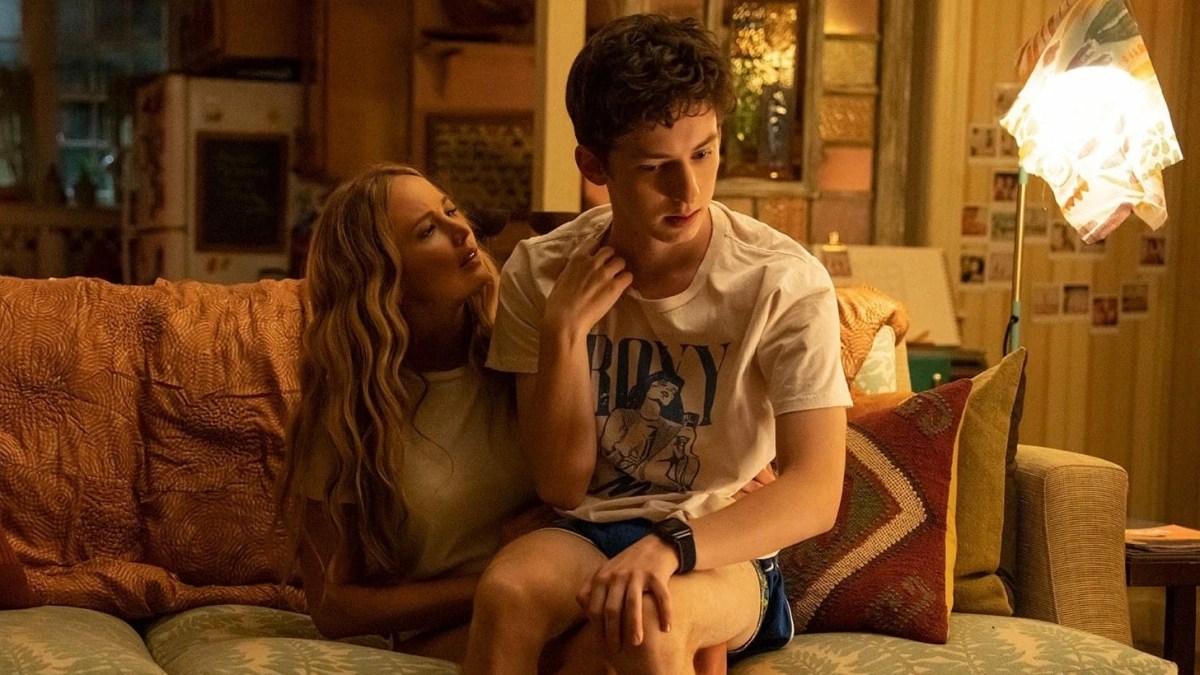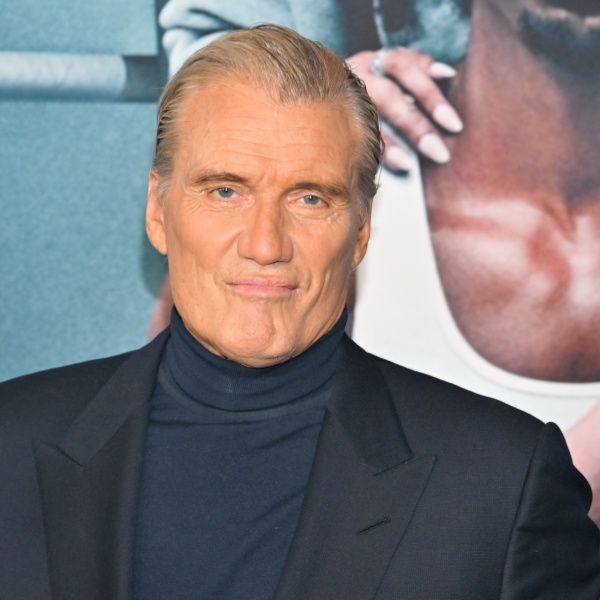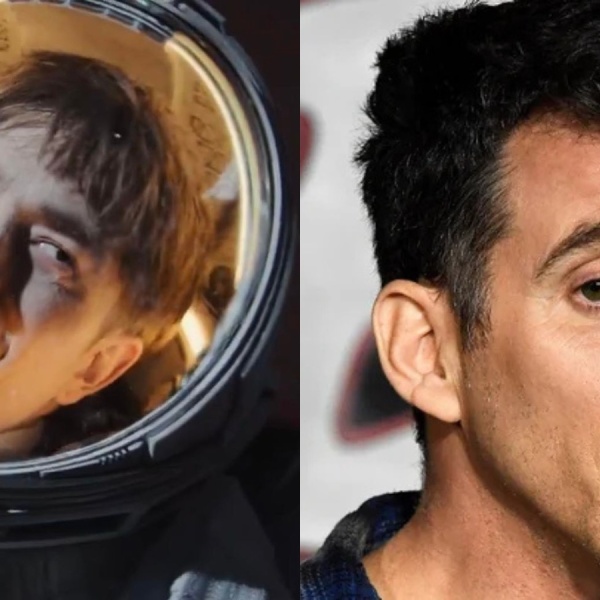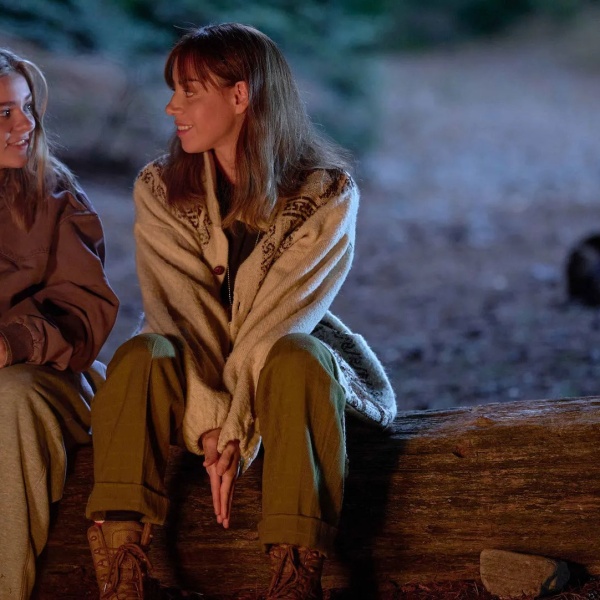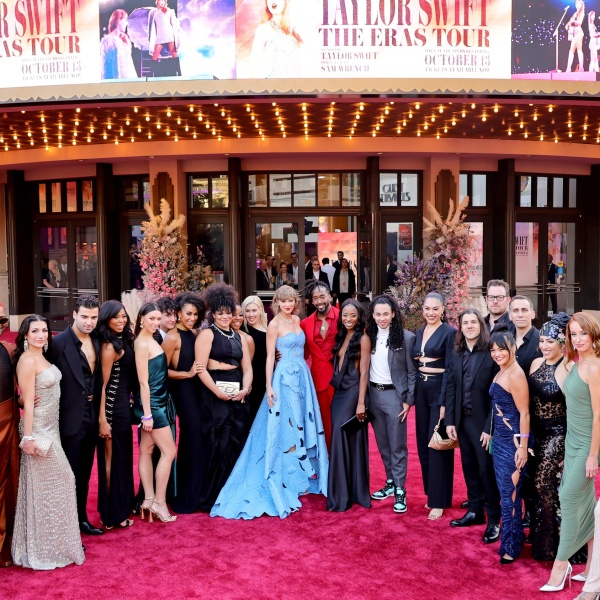Last week’s new release “No Hard Feelings” has already stirred up some tough emotions for its audience — and not about the so-called “raunchy” and “offensive” comedy at the center of the Jennifer Lawrence-led feature. Instead — and predictably enough — the media narrative has centered on what is missing from the movie…namely, all of Lawrence’s clothes in a scene that sees skinny-dipping turned into a brawl.
Why, in 2023, do audiencesstill care so much?Both Lawrence’s agency as an actress and producer, as well as her choice to be naked, are undermined by questioning the merits of going full frontal, and sadly, that’s what much of the criticism surrounding “No Hard Feelings” is focused on.
In the film, Lawrence portrays down-on-her-luck Uber driver/bartender Maddie, who struggles to live in the wealthy beach town of Montauk after rapid gentrification. Maddie answers a Craigslist ad from a rich couple looking to hire a woman to give their 19-year-old son, Percy (Andrew Barth Feldman), more “experience” dating before he goes off to Princeton. During one of Maddie’s first attempts to seduce Percy, she invites him to go skinny-dipping. The only issue other than Percy not wanting to have sex is that their clothes are stolen by obnoxious teens, whom Maddie fights while naked at the beach at night.
The brief (and hilarious) “No Hard Feelings” nude sequence has been debated on Twitter by critics calling Lawrence’s stripped-down battle with teens a “gratuitous” focus on her naked body. One journalist coming out of the film’s premiere screening last week wondered whether it was a deepfake or body double, though Lawrence has already addressed the choice as both an actress and a producer, telling People magazine that she “took a deep breath and then disrobed.”
The Oscar winner told Variety that she even had to convince her own team that it was worth going fully nude.
“Everyone in my life and my team is doing the right thing and going, ‘Are you sure? Are you sure? Are you sure?’” Lawrence said. “I didn’t even have a second thought. It was hilarious to me.”
It feels important, albeit irrelevant, to point out that the full frontal scene is entirely sexless; there is no romance, no lingering camera gaze, and no ogling of Lawrence’s postpartum physique onscreen. Nope, that dialogue is all happening offscreen as various audience members and critics perpetuate the discourse around so-called excessive and unnecessary full-frontal nudity, especially when it comes to female stars.

Sure, there was a brief, cutesy comic debate over the male nudity in the porn magazine comedy “Minx,” but it was all very PG. “Forgetting Sarah Marshall” has been thrust back into the conversation amid rom-com full frontal in “No Hard Feelings,” but in that film, Jason Segal’s penis was intended as a showcase of sexual vulnerability.
Now, an R-rated coming-of-age comedy that has zero actual sex scenes is somehow being deemed “offensive” by its own stars in a seemingly defensive media tactic assuring us that no, the movie is not promoting sex work. The enhanced criticism and assumptions around the level of raunchiness for “No Hard Feelings” is due in part to the initial reception of an Academy Award winner’s choice to strip down for the sake of a laugh.
And that choice could also be traced back to the infamous 2014 nude photo leak, which Lawrence called a “sex crime” as internet users could see her naked “without my consent, any time of the day” forever.
“I was just so afraid, I didn’t know how this would affect my career,” Lawrence told Vanity Fair in 2021 reflecting on the hack. Lawrence’s decision to disrobe for “No Hard Feelings” is instead her own choice, and makes a statement on the ownership over her own body’s image.
Lawrence additionally told Vogue last year amid the Roe v. Wade Supreme Court decision, “Get the government out of my snatch,” and honestly, same goes for film critics and Twitter users.
“It’s too personal to a female’s existence to watch white men debate over uteruses when they from the bottom of their hearts can’t find a clitoris,” Lawrence said at the time.
Does the disrespect for women’s bodies need to extend beyond politics, doctors’ offices, and religious debates and now into film criticism?
“No Hard Feelings” is far from the only female-led project featuring female nudity that has recently been defended and explained by its lead actress. In a similar “strong yet messy female lead” saga, Lily-Rose Depp‘s star-making performance in the controversial HBO series “The Idol” is being overshadowed by labels that the show is pornographic amid media backlash.

Depp leads the show as a down-on-her-luck pop star who, like “No Hard Feelings” lead Maddie, is grieving over the loss of her mother and clawing to find a way to maintain her lifestyle while staying true to her voice.
Creators Sam Levinson and Abel “The Weeknd” Tesfaye have frequently responded to claims of an allegedly predatory vision involving Depp; meanwhile, the actress stood by the series throughout its marketing campaign and denied feeling pressured to bare more.
“There are many women who have felt exploited by the nudity they’ve done and have thought, ‘I didn’t feel great about that.’ But, I’m comfortable performing in that way, I enjoy it,” Depp told The New York Times. “It informed the character. In the conversation around the risqué aspects, there’s the implication that it’s something being consistently imposed upon women. Obviously, that has been true a lot historically.”
“Euphoria” showrunner Levinson added of Depp’s character, “I believe people will underestimate Jocelyn as a character because of how exposed she is.” Isn’t that exactly what “The Idol” viewers are doing, both for Depp’s real-life agency and that of her character?

Jocelyn knows she’s self-destructive. That’s the whole point of the series. She’s in control of her desire to be out of control; as much as sketchy club owner Tedros (Tesfaye) is using Jocelyn for clout, she’s using him right back to dismantle her own former child star image and clean house for her creative team. Jocelyn wants to change how she is perceived by her public, and someone as unhinged as Tedros coming into her inner circle is the quickest way to do it. Or, as the most recent episode hinted at, Jocelyn knew exactly what she was doing — and who she was manipulating with her sexuality — all along.
“The Idol” actress Jane Adams, for one, anticipated the backlash to the show’s nudity in conversation with Yahoo! Entertainment.
“I would say… with Lily-Rose, like why would nudity be a bad thing? What are people talking about?” Adams said. “I don’t understand. I don’t even believe that mindset is real. That whole mindset seems fake to me, this outrage and pearl-clutching that’s going on about a nude actress who’s beautiful. When did that become outrageous?”
“The Idol” has been criticized for scandalous sequences, including a cringe “sex” scene that was again, actually sexless, during which Tedros essentially reads aloud most millennials’ Hinge chat threads while Jocelyn masturbates on a bed. The internet went berserk.
As for the nudity, Jocelyn is most nude while still wearing clothes. You read that right: The majority of her outfits consist of sheer dresses, black thongs, and no bra. When Tedros purrs with no doubt sour breath that he wants to “see her tits,” he can literally already see Jocelyn’s breasts, which are only concealed by a crop top with the same consistency as a shower curtain. Is this really “gratuitous” nudity: wearing an outfit that we can buy at Urban Outfitters this very minute?
And when there really could be male gaze-y over-the-top nudity onscreen, like when Jocelyn takes a shower, the camera stays strictly above her collarbones. Are we really trying to say that Jocelyn (and, in a sad, blurred line, Depp herself) deserves such internet hate because of what she was wearing?

There is a slew of other problems with “The Idol,” ones that IndieWire’s Ben Travers has deftly unpacked and discussed. The perpetuation of Jocelyn’s abuse, portrayed as her conditioned choice, is glaringly underdeveloped thus far in the series, and it seems that we won’t be getting a sensitive mental health resolution to Jocelyn’s self-harm spiral at this pace. Yet when it comes to the singular critique of her so-called excessive nudity, the internet has missed the mark.
Within the merits of nudity, there is a deeper double standard between comedy and drama, or the purpose behind what the female naked body onscreen is trying to convey. “No Hard Feelings” would be a very different film if the gender roles were reversed. A 32-year-old man being hired to date a 19-year-old woman? No, thanks. But would the backlash and arguably overbearing media campaign still be necessary? Is this because it’s an “unlikeable woman” who strips down or an Oscar-winning actress?
Lawrence is already facing increased scrutiny in the limelight amid seeming media fatigue over her celebrity status. “The Idol” creator Levinson, meanwhile, is used to being criticized, mostly for his loose approach to production on “Euphoria” and allegedly asking Sydney Sweeney for more nude scenes onscreen, which Sweeney later debunked. While there have not been any “The Idol” rumors around Depp’s consent for stripping as Jocelyn, why does the internet seem to be anticipating such? Or, rather, why is there a need to blame a man in power for a woman’s right to show her body?
Lawrence, a certified bankable movie star and one of the most iconic actresses of the 21st century, is an executive producer on “No Hard Feelings” and yet still her decision to strip down is questioned. Depp, the daughter of Oscar nominee Johnny Depp and a rising actress in her own right, is inherently aware of Hollywood itself. The intimacy coordinator scene in “The Idol” premiere plays as a snarky commentary parodying the obsession with being buttoned-up: Jocelyn is alone shooting her album cover, wants to show her breasts, but cannot due to her contract. It’s the same subversive nature into which “The Idol” media circus has spiraled: Depp wants to do this, but a young woman clearly cannot be capable of making that decision herself, according to how the series has been received.
Both Lawrence and Depp’s respective performances have become entangled with their real-life personas, and the narrative only continues to undermine the profession of being a female-identifying star.

And, amid the questioning of why Lawrence and Depp would go nude, there is no mention of Cynthia Nixon’s full frontal scene in “And Just Like That.” Similar to “No Hard Feelings,” Miranda (Nixon) is completely naked in a comedic sequence during which she folds herself into (and quickly out of) a sensory deprivation tank. Nixon has portrayed Miranda for more than 25 years and recently told Entertainment Tonight that she is “fairly game” for anything in character, including getting totally naked since “Sex and the City” is, well, about sex. So, what types of female bodies are being deemed as “gratuitously” naked, and others being labeled as “brave” due to seniority?
The discrepancy between reactions is inherently tied to viewers’ inherent puritanical response to sexualize certain bodies and not others; any backlash vocalized is really in response to their own personal reactions, not the content itself. The hard feelings onscreen female nudity inspire? That’s something audiences will just need to handle themselves.
